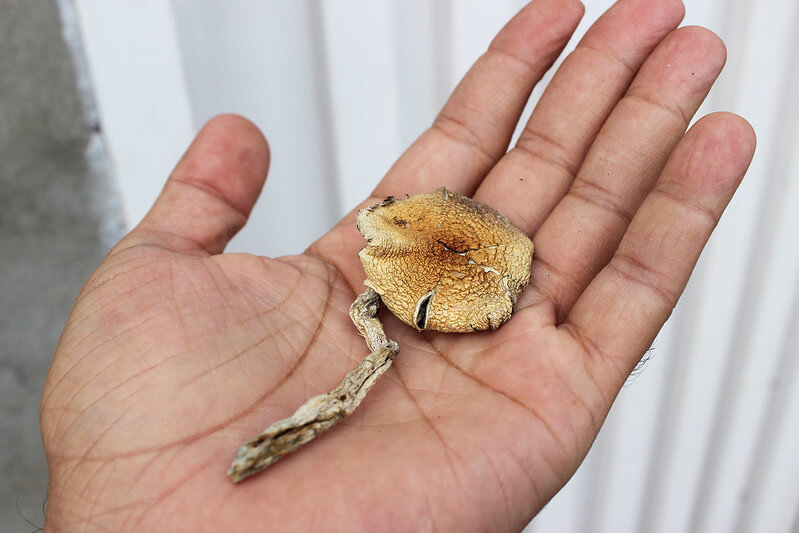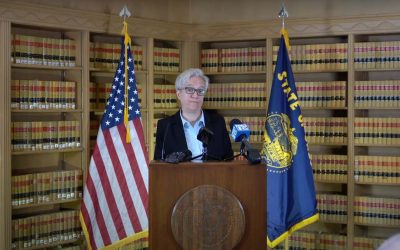After the passage of Ballot Measure 109 in 2020, Oregon became the first state to legalize magic mushrooms. It was an unprecedented act, and it was seen by many as a victory for the psychiatric field. But the measure also gave jurisdictions a chance to revisit the vote in 2022, before the rollout of the Oregon Psilocybin Services division in 2023.
When the election results came in, 25 Oregon counties and 100 cities voted to ban magic mushrooms. That does not include the most populous regions in the state, where the substance will be made legal. But it does include many of the rural areas.
The 25 counties in red on this map voted to ban Magic Mushrooms. The state also saw just over 100 cities banning them although the 20 most populated cities in Oregon will allow them. pic.twitter.com/Hdukebtk7l
— Christina Giardinelli (@c_giardinelli) November 14, 2022
Cure-all or Dangerous Experiment: Legalizing Psilocybin for Medicinal Use
It's a longstanding conundrum, affecting both the criminal justice system and the medical community. Many believe that the active ingredient in magic mushrooms, psilocybin, is capable of treating mental health disorders. People with PTSD, depression, and addiction have all spoken out, saying that it helped them turn their lives around. It's been said that the drug could herald in a new age, treat untreatable disorders, and revolutionize the way we see psychiatric care.
It's a form of medicine that has been traditionally ignored by modern practitioners, largely due to bias. Psilocybin and other psychedelics have been banned for decades, and they carry all of the stigmas that come with criminalization. Psychologists and psychiatrists spend their time getting people off of illegal drugs, not passing them out. But new research has started to show promise that cannot be ignored.
Revolutionary Findings
People are starting to talk. Patients will go on retreats, leave the country, and come back with a new lease on life. It's more than just sun and sand. Psilocybin appears to be capable of changing the brain's makeup, encouraging growth and transformation.
It's been said that it can ease anxiety, cut through depression, aid those with obsessive-compulsive disorder, and cure addiction--all disorders with significant barriers to treatment. If it works, doctors might be able to discontinue the use of addictive and dangerous medications like benzodiazepines. They might even be able to work on healing as opposed to treatment, an exciting paradigm shift in any medical field.

doka79 / Flickr
The effects of psilocybin on addiction could change the world. For decades scientists used population surveys, where they would ask participants if they took psilocybin in conjunction with opioids and cocaine. What they found was that people who took magic mushrooms were less likely to exhibit substance abuse disorders.
Lax laws have allowed them to test this theory in clinical trials where they provided patients with the actual substance and took note of their reactions. In one study, they found that nicotine users had an 80% cessation rate after six months. In another, heavy alcohol drinkers reduced their intake by 83%. These numbers are unheard of.
Alcohol and nicotine are not heroin or cocaine, but there does seem to be an increase in cessation across the board. Psilocybin has a number of other benefits when compared to traditional medicine. It would not have to be taken regularly, which would cut down on the lapses in treatment that mental health and addiction patients are so famous for. It's also non-addictive. You might meet the rare soul who takes them compulsively, but it isn't known to cause a dependence either physically or psychologically.
The Downer
Many in Oregon are concerned about the effect that the new law may have on the black market. Mushrooms can be grown easily in small, indoor spaces. Often spore syringes can be purchased online and shipped to the home. They're sold as novelty items, obtained from regular websites. This new law could result in a surge of black market production, which would bolster organized crime and all of the consequences that come with it.
Some have pointed to the poorly planned rollout of Oregon's drug decriminalization measure, which brought drug use and dealing out into the open. These concerns may or may not have validity. Psilocybin isn't addictive, so it's possible that they're unfounded.
People are concerned about the impact that widespread use could have on public health, and that is definitely something to watch. Nobody knows how psilocybin works or what it could do to the body. Scientists are merely guessing.
When a new substance hits legal markets, it can take decades for them to understand the side effects. History has proven this time and time again. All sorts of poisons have ravaged our communities, and often times the public will insist that they are perfectly safe. They'll even take a moral stance and ignore the science. We could easily slip into that pattern. The dynamic is there.
Psilocybin could change psychiatry and the way we see treatment, but we should all be cautious. According to research, it has a profound impact on the brain. That could wreak untold havoc, and we might not know until it's too late.













